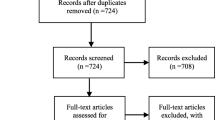Abstract
Objective: This paper describes the introduction of formative feedback into a psychiatry attachment at an Australian university and evaluates students’ responses to that initiative. Method: Students were provided with formative feedback sessions employing a standardized instrument, also used at the end of the attachment for summative assessment. They were asked to both define formative feedback and rate its usefulness on a questionnaire, providing open-ended written comments where appropriate. Results: The concept and purpose of formative feedback were understood by 91.9% of the students who completed a questionnaire. The vast majority considered it to be useful, but some identified the need for constructive criticism and structured feedback as important characteristics of formative sessions. Conclusions: Rigorous research is needed to establish whether formative feedback impacts summative assessments. However, it is clear that such feedback is desirable, in that it increases student confidence and direction. We encourage our colleagues to consider introducing and evaluating formative feedback into psychiatry curricula.
Similar content being viewed by others
References
Sadler DR: Formative assessment and the design of instructional systems. Instructional Science 1989; 18: 119–144
Rolfe I, McPherson J: Formative assessment: how am I doing? Lancet 1995; 345: 837–839
Hays R, Wellard R: In-training assessment in postgraduate training for general practice. Med Educ 1998; 32: 507–513
Kelly DR, Murray TS: The development and evaluation of a personal learning log for Senior House Officers. Med Educ 1999; 33: 260–266
McKinley RK, Fraser RC, van der Vleuten C, et al: Formative assessment of the consultation performance of medical students in the setting of general practice using a modified version of the Leicester Assessment Package. Med Educ 2000; 34: 573–579
Brass K, Pilven P: Using timely feedback on student progress to facilitate learning, in Cornerstones: What Do We Value in Higher Education? Canberra, Higher Education Research and Development Society of Australasia, 1999
Author information
Authors and Affiliations
Corresponding author
Additional information
The authors thank Ms. Kaye Brown and Ms. Lara Duff who distributed and collected the questionnaires at the two teaching sites and the students for their cooperation.
Rights and permissions
About this article
Cite this article
Chur-Hansen, A., Koopowitz, L.F. Formative Feedback in Teaching Undergraduate Psychiatry. Acad Psychiatry 29, 66–68 (2005). https://doi.org/10.1176/appi.ap.29.1.66
Published:
Issue Date:
DOI: https://doi.org/10.1176/appi.ap.29.1.66




